The American Civil War, a defining and tumultuous chapter in the nation’s history, has been portrayed in numerous films over the decades.
While many of these cinematic depictions take creative liberties, a select few stand out for their dedication to historical accuracy.
This article highlights some of the most accurate Civil War movies, each offering a unique perspective on the conflict, its causes, and its consequences.
Gettysburg (1993)
“Gettysburg,” directed by Ronald F. Maxwell, is widely regarded as one of the most historically accurate Civil War films.
Based on Michael Shaara’s Pulitzer Prize-winning novel The Killer Angels, the film recreates the events of the Battle of Gettysburg, a pivotal clash considered by many historians to be the turning of the war.
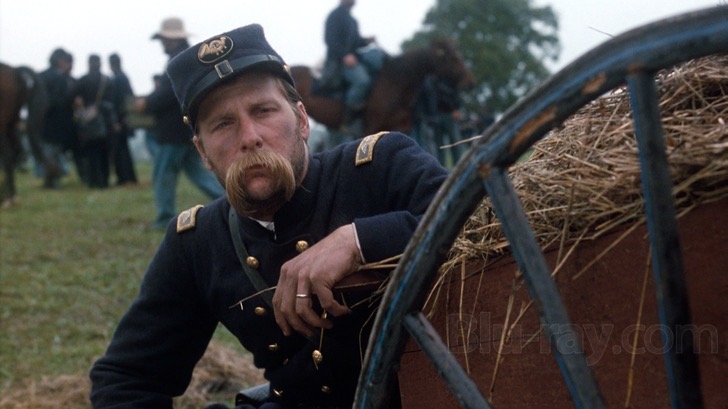
The film’s accuracy is rooted in its faithful depiction of key figures’ strategies, uniforms, and personalities, such as General Robert E. Lee, General George Meade, and Colonel Joshua Chamberlain.
The battle scenes required the participation of thousands of Civil War reenactors, adding to the film’s realism. “Gettysburg” does not merely focus on the military aspects but also delves into the soldiers’ and commanders’ motivations and emotions, adding another layer of authenticity.
Glory (1989)
“Glory,” directed by Edward Zwick, tells the story of the 54th Massachusetts Infantry Regiment, one of the first African American units in the Union Army.
The film stars Matthew Broderick as Colonel Robert Gould Shaw and features standout performances by Denzel Washington, Morgan Freeman, and Andre Braugher.
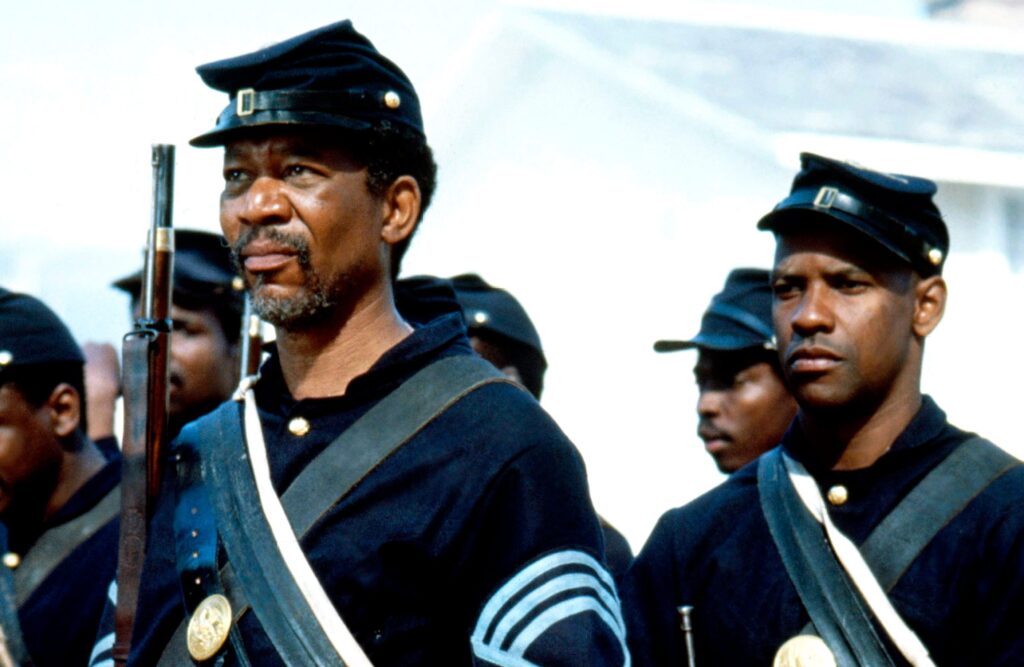
“Glory” is celebrated for its accurate portrayal of the experiences of African American soldiers during the Civil War, highlighting the prejudice and discrimination they faced within the Union Army and from the Confederacy.
The film’s depiction of the regiment’s training, battles, and the climactic assault on Fort Wagner is based on historical accounts, making it both an educational and emotionally resounding portrayal of the war.
Lincoln (2012)
Steven Spielberg’s “Lincoln” is a masterful depiction of President Abraham Lincoln’s final months, focusing on his efforts to pass the 13th Amendment, which would abolish slavery in the United States.
Daniel Day-Lewis’s portrayal of Lincoln is widely praised for its authenticity, capturing the president’s mannerisms, speech, and the political acumen that defined his leadership.
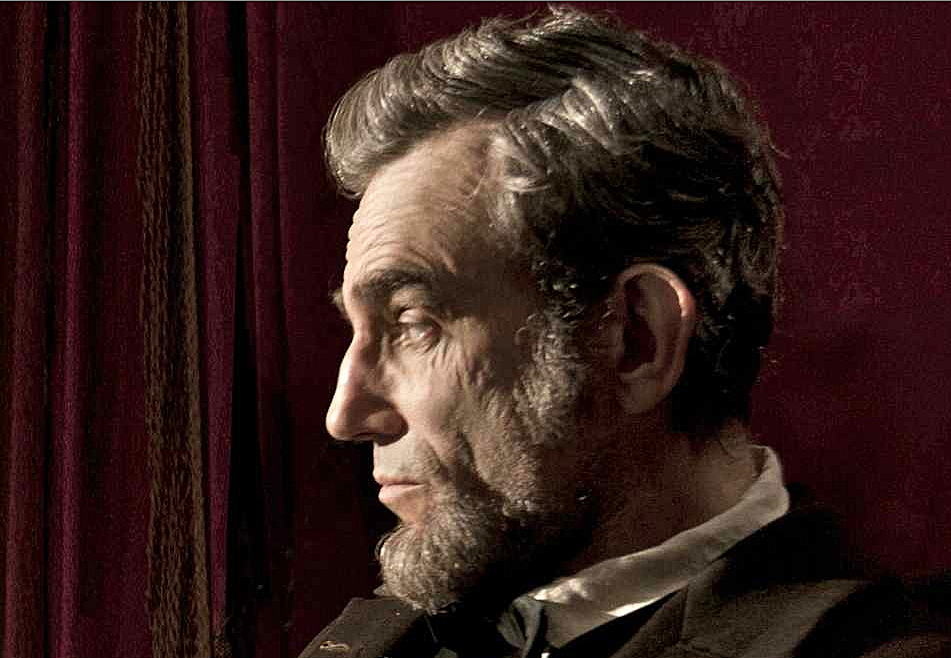
Based on Pulitzer Prize–winning author Doris Kearns Goodwin’s book Team of Rivals: The Political Genius of Abraham Lincoln, the film meticulously recreates the political climate of the time, including the behind-the-scenes negotiations, the debates in Congress, and the public sentiment surrounding the abolition of slavery.
Ride with the Devil (1999)
Directed by Ang Lee, “Ride with the Devil” offers a unique perspective by focusing on the guerrilla warfare along the Missouri-Kansas border. The film, based on Daniel Woodrell’s novel Woe to Live On, stars Tobey Maguire, Skeet Ulrich, Jeffrey Wright, and Jewel.
“Ride with the Devil” is praised for its accurate portrayal of the irregular warfare that characterized much of the conflict in the border states.
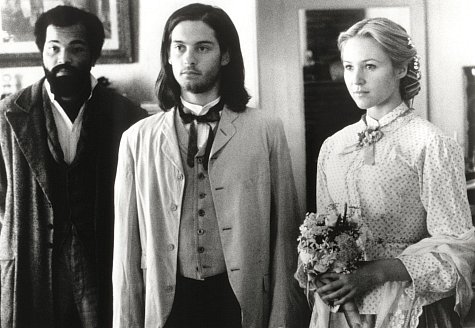
The film dives into the complexities of loyalty, identity, and survival in a region where the lines between Union and Confederate sympathies were often blurred.
The depiction of events such as the Lawrence Massacre and the harsh realities of guerrilla warfare are masterfully handled, making “Ride with the Devil” a compelling and authentic representation of a lesser-known part of the Civil War.
Andersonville (1996)
“Andersonville,” directed by John Frankenheimer, is a haunting portrayal of life inside one of the most infamous Confederate prison camps during the Civil War.
The film is based on the true experiences of Union soldiers imprisoned at Camp Sumter, commonly known as Andersonville, in Georgia.
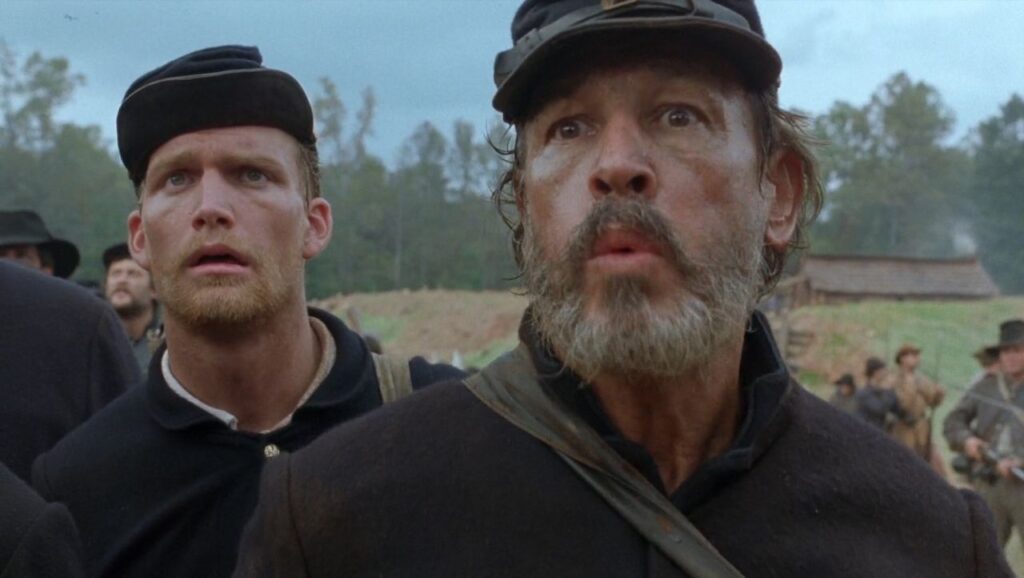
The film is notable for its grim realism and attention to detail in depicting the horrendous conditions faced by prisoners, including overcrowding, disease, and severe malnutrition.
The portrayal of the camp’s commandant, Captain Henry Wirz, and the desperate measures taken by the prisoners to survive are drawn from historical records and survivor testimonies.
Shenandoah (1965)
“Shenandoah,” directed by Andrew V. McLaglen, offers a unique perspective on the Civil War by focusing on the conflict’s impact on a Virginia farming family led by James Stewart’s character, Charlie Anderson.
Unlike many Civil War films that center on battles and military strategy, “Shenandoah” explores the war’s effect on civilians and the moral dilemmas faced by those who sought to remain neutral.
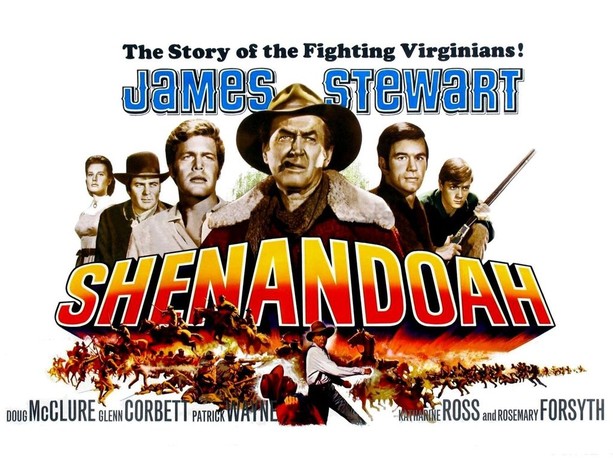
The film accurately portrays the tensions and divisions within families and communities during the war, as well as the harsh realities of conscription, the loss of loved ones, and the destruction of one’s home.
While “Shenandoah” does take some liberties for dramatic effect, its depiction of the period’s social and cultural dynamics is grounded in historical truth, making it a valuable addition to the canon of Civil War films.
The Red Badge of Courage (1951)
“The Red Badge of Courage,” directed by John Huston and based on Stephen Crane’s classic novel, stands out for its psychological realism rather than its depiction of specific historical events.
The movie follows a young Union soldier, Henry Fleming, portrayed by Audie Murphy, as he confronts the fears and anxieties of battle.
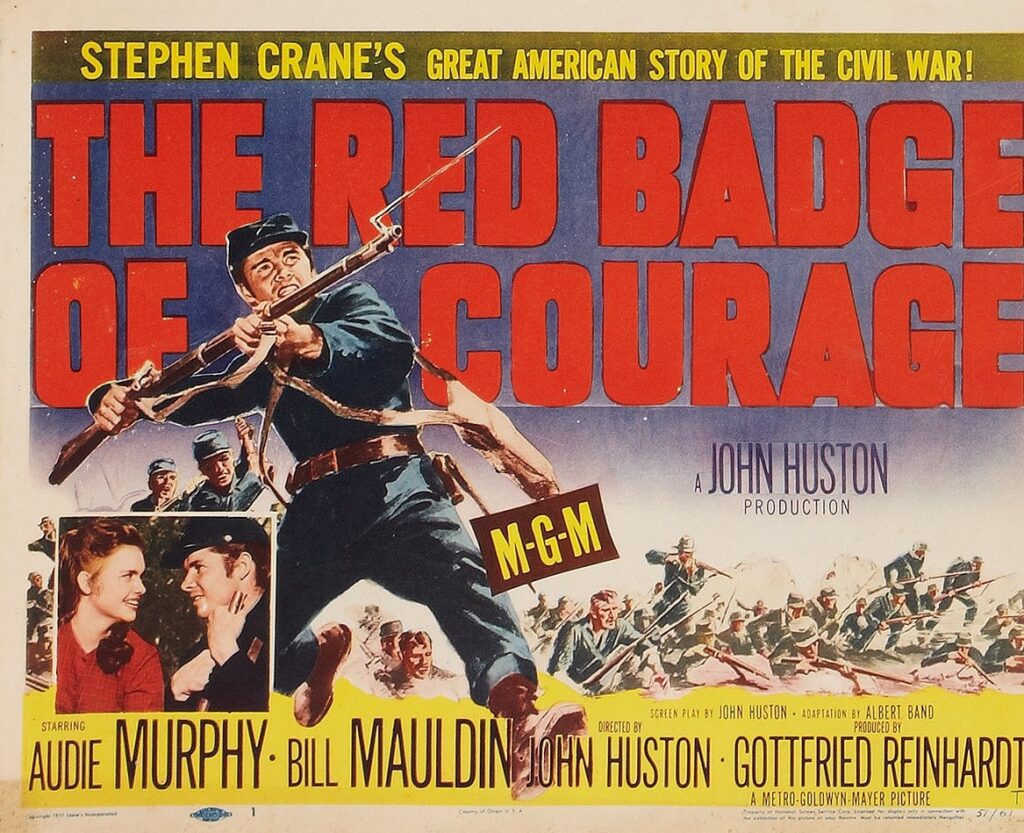
The film’s accuracy lies in its faithful adaptation of Crane’s exploration of the inner turmoil soldiers face.
While not grand in scale, the battle scenes are depicted with a gritty realism that reflects the chaos and fear of combat. The movie’s focus on war’s emotional and mental challenges, rather than the broader historical context, provides a unique and authentic perspective on the Civil War experience.
The American Civil War continues to be a source of fascination for filmmakers and audiences alike. While many films have attempted to capture the essence of this conflict, few have done so with the level of historical accuracy found in “Gettysburg,” “Glory,” “Lincoln,” “Ride with the Devil,” and “Andersonville,” and more.

